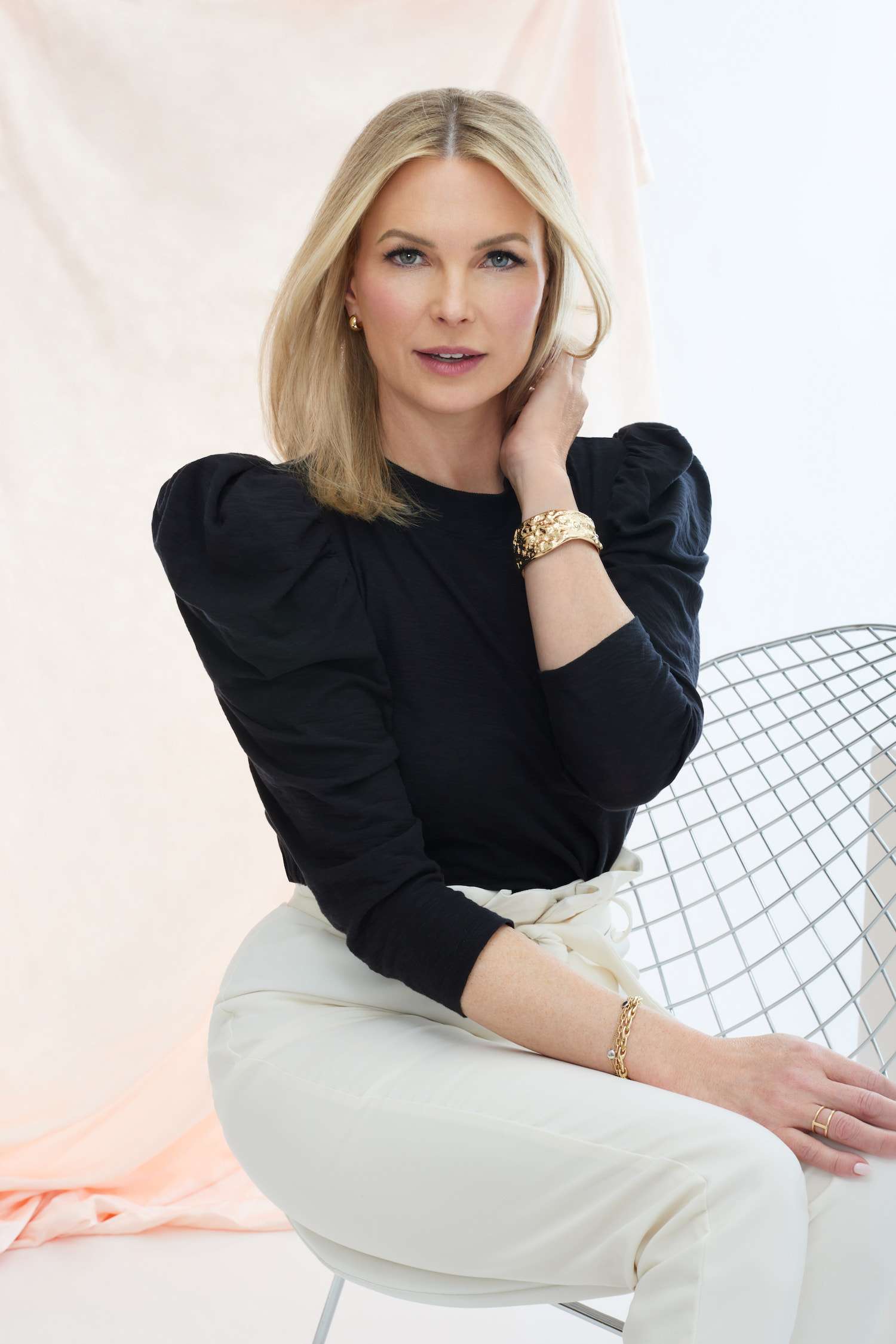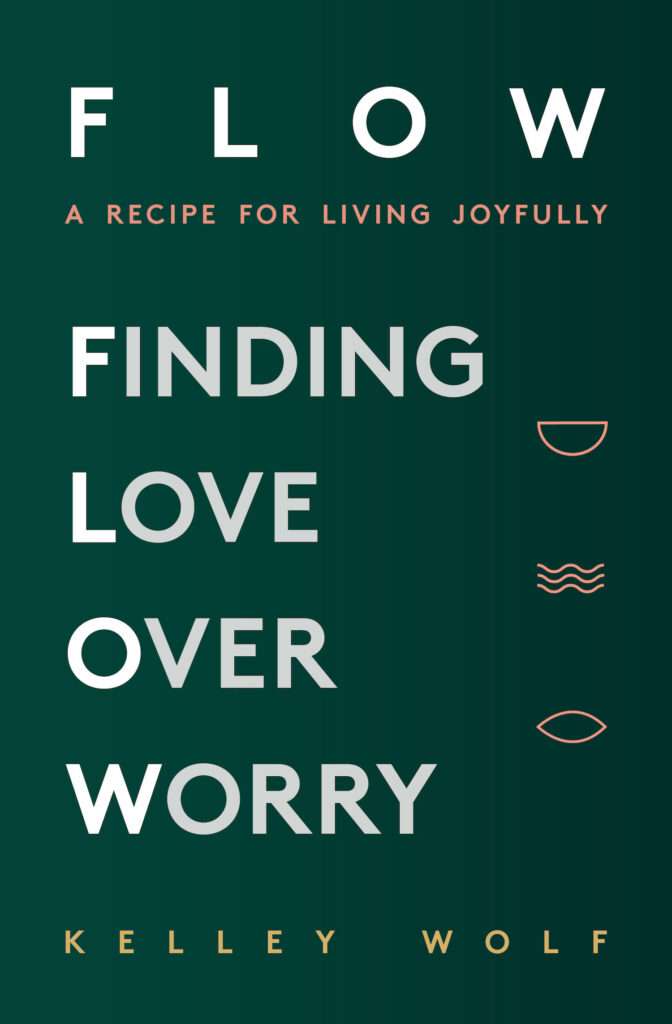Kelley Wolf is a globally recognized certified life and personal development coach, author, speaker and spiritual thought leader. She is also the founder and CEO of coaching methodology FLOW – Finding Love Over Worry™.
Kelley became a sought-after life coach to many high-profile clients, leaders of Fortune 100 companies, C-level executives, stay-at-home moms, small business owners, and nonprofits, among others looking to find more peace in their life.

She uses FLOW in her practice to help hundreds of individuals and companies challenge their own thoughts and change their behaviour patterns. She is also formerly part of the cast on the groundbreaking hit MTV series, The Real World: New Orleans, as well as the winner of the Real World/Road Rules Challenge, an opportunity that led her to New York City, where she met her husband, actor Scott Wolf.
Outside of her coaching work, Kelley commits much of her time to philanthropy, having visited many nations globally to provide aid and care. She connected deeply to Africa during her travels, inspiring her to co-create The Chier Foundation in 2005.
Her new book FLOW: Finding Love Over Worry: A Recipe for Living Joyfully is available now.
Wander: We enjoyed your book immensely and identified with many of the stories. Thanks so much for taking the time to answer some of our questions.
Kelley: I sincerely appreciate your kind words. Thank you.
This is the first book we have encountered that really dives deeply into worry itself. We tell ourselves not to worry, but we worry anyway, and then we really don’t talk about worry and how damaging it is. How does one differentiate between worry and fear?
I am on a mission to challenge the worry we are all experiencing so it doesn’t become our main operating system. I love this question because it is at the heart of the FLOW method. In FLOW, we want to understand the difference between worry and fear.
Fear is a gift and a guide. Fear will feel like an immediate sensation in your body. It is your brain and body working in tandem to keep you safe. Worry is the sneaky little bugger that likes to masquerade as helpful but is quite damaging. Worry shows up as ruminating thoughts, usually based on concerns about a negative outcome.
When you are on the worry roller coaster, your body may feel an elevated sense of anxiety, that is certainly uncomfortable. Fear will show up as a full-body response to alert you to danger and typically comes and goes when the danger is no longer present. Worry sticks around, doing nothing but making you unhappy.

We talk a lot about meditation here at Wander and definitely agree that many people are tired of hearing they should start! So we love your notion of perhaps “rebranding it” as Quiet Time and aiming for just five minutes of sitting. How did you find your way to transcendental meditation?
I hear this! We are burnt out on the meditation mandate but whether we like it or not, it is a true game-changer. I am like most people; I find that a longer mediation practice is out of reach and then I don’t do it at all and then I feel like I failed. This is what happened when I was trained in Transcendental Meditation. I loved the practice, but I struggled to commit. Sound familiar?
In my book, I offer different strategies to integrate meditation practices that are doable throughout your day. You may consider them more of a mindful practice, instead of classic meditation practice. The reason meditation is so beneficial is because it gives your brain (and body) a reprieve from the onslaught of incoming stimuli. We were not made to absorb the level of attention-grabbing content we are offered throughout the day. It falls to us to find a way to clean out the clutter.
In the book, I use the metaphor of dirty dishes. You can absolutely leave the dishes in the sink; nothing will happen other than your irritation at looking at them and maybe a little stink. If you take 10 minutes to clean the dishes, you will feel exponentially better about your day. The same is true for meditation and cleaning out your mind throughout the day. Until we have a brain dishwasher, we have to roll up our sleeves.
Anxiety is a topic that is gaining attention the world over. In your work, how often do you find anxious people are actually people pleasers? Interesting how people-pleasing is rooted in fear as well.
You hit the nail on the head! Of course, you can have anxiety without being a people pleaser but you are likely TO have anxiety if you are a people pleaser. It is in the title: If your focus is on pleasing people then your focus is likely not on pleasing yourself first.
I sound like my grandma, but you cannot pour from an empty cup. You can see where this would lead to chronic anxiety.
In FLOW we focus on taking care of ourselves first so we can be of service to the world around us. The goal is service, the practice begins with putting your oxygen mask on first.
On anxiety, you note that “…even as we live through the easiest of lifetimes, as measured by world violence and access to goods, services and modern medicine, we are unsatisfied and chronically anxious. We may fabricate danger when there is none.” Do you find that anxiety goes hand in hand with dissatisfaction?
These two are part and parcel of the other. When we believe the answer lives outside of ourselves, we immediately drop into dissatisfaction and scarcity. If I don’t like my house and I begin to fixate on that dissatisfaction, I will see all the things that are wrong. The same is true in any category.
In the FLOW practice, we begin to see what we love. You may love the closet in the house that you don’t care for, focus on that to begin. This doesn’t mean you have to stay in the house you hate, it means you are driving the car of your peace. We want to stay conscious of what is taking us away from peace. Peace will always be driven by what you think and how you feel, not what you have or don’t have.

You talked about your experience with a postpartum breakdown, a severe form of depression that is unfortunately still not discussed or shared enough. How can we support breaking this silence?
When I was in the throes of PPD, it was the most terrifying time of my life. I am grateful I had access to therapy and a supportive partner. I cry for the women who are navigating that world without any information on how to get help. I believe it starts with things like this. I tell my story in the hopes that another woman will see that I am okay, and she will be okay. I am okay today. I made it through, and you can too.
On a few occasions, I called a suicide hotline. It is free and it helps. There are free services you can find through a Google service and you must not be ashamed to make the call. I tell you that I called so you know we are all in this together. There is nothing broken when a woman suffers from PPD, it can happen to anyone and it WILL get better.
Scott joined you on the podcast recently, and we found you have a powerful shared outlook. Any chance of writing a book together in future?
That would be a dream come true! We have talked about doing a joint project for years. He is my best friend and my co-pilot; I could not imagine a better day at work!
Finally, we love how you included your beautiful recipes throughout the book. This isn’t a question, but we wanted our readers to have this gem of yours because it spoke to us: “I have a simple rule: People need to eat. No matter what. If someone is going through something, never say, “What do you need?” When someone is struggling, they don’t know what they need, but you do.”
Thank you! Bring food! That is my motto: when someone needs help, bring them food.
You may think, “I have heard this all before,” and you have. The information in this book is some of the oldest advice on earth, if we choose love over fear, we can live more joyfully, but you’ve never heard it like this.


